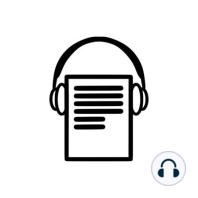20 min listen

Novel therapeutic strategies for injured endometrium: Autologous intrauterine transplantation of menstrual blood-derived cells from infertile patients
Novel therapeutic strategies for injured endometrium: Autologous intrauterine transplantation of menstrual blood-derived cells from infertile patients
ratings:
Length:
20 minutes
Released:
Nov 17, 2022
Format:
Podcast episode
Description
Link to bioRxiv paper:
http://biorxiv.org/cgi/content/short/2022.11.17.516854v1?rss=1
Authors: Hosoya, S., Yokomizo, R., Kishigami, H., Fujiki, Y., Kaneko, E., Amita, M., Saito, T., Kishi, H., Sago, H., Okamoto, A., UMEZAWA, A.
Abstract:
Background: Menstrual blood-derived cells show regenerative potential as a mesenchymal stem cell and may therefore be a novel stem cell source of treatment for refractory infertility with injured endometrium. However, there have been few pre-clinical studies using cells from infertile patients, which needs to be addressed before establishing an autologous transplantation. Herein, we aimed to investigate the therapeutic capacity of menstrual blood-derived cells from infertile patients on endometrial infertility. Methods: We collected menstrual blood-derived cells from volunteers and infertile patients, and confirmed their mesenchymal stem cell phenotype by flowcytometry and induction of tri-lineage differentiation. We compared the proliferative and paracrine capacities of these cells. Furthermore, we also investigated the regenerative potential and safety concerns of the intrauterine transplantation of infertile patient-derived cells using a mouse model with mechanically injured endometrium. Results: Menstrual blood-derived cells from both infertile patients and volunteers showed phenotypic characteristics of mesenchymal stem cells. In vitro proliferative and paracrine capacities for wound healing and angiogenesis were equal for both samples. Furthermore, the transplantation of infertile patient-derived cells into uterine horns of the mouse model ameliorated endometrial thickness, prevented fibrosis and improved fertility outcomes without any apparent complications. Conclusions: In our preclinical study, intrauterine transplantation of menstrual blood-derived cells may be a novel and attractive stem cell source for the curative and prophylactic therapy for injured endometrium. Further studies will be warranted for future clinical application.
Copy rights belong to original authors. Visit the link for more info
Podcast created by Paper Player, LLC
http://biorxiv.org/cgi/content/short/2022.11.17.516854v1?rss=1
Authors: Hosoya, S., Yokomizo, R., Kishigami, H., Fujiki, Y., Kaneko, E., Amita, M., Saito, T., Kishi, H., Sago, H., Okamoto, A., UMEZAWA, A.
Abstract:
Background: Menstrual blood-derived cells show regenerative potential as a mesenchymal stem cell and may therefore be a novel stem cell source of treatment for refractory infertility with injured endometrium. However, there have been few pre-clinical studies using cells from infertile patients, which needs to be addressed before establishing an autologous transplantation. Herein, we aimed to investigate the therapeutic capacity of menstrual blood-derived cells from infertile patients on endometrial infertility. Methods: We collected menstrual blood-derived cells from volunteers and infertile patients, and confirmed their mesenchymal stem cell phenotype by flowcytometry and induction of tri-lineage differentiation. We compared the proliferative and paracrine capacities of these cells. Furthermore, we also investigated the regenerative potential and safety concerns of the intrauterine transplantation of infertile patient-derived cells using a mouse model with mechanically injured endometrium. Results: Menstrual blood-derived cells from both infertile patients and volunteers showed phenotypic characteristics of mesenchymal stem cells. In vitro proliferative and paracrine capacities for wound healing and angiogenesis were equal for both samples. Furthermore, the transplantation of infertile patient-derived cells into uterine horns of the mouse model ameliorated endometrial thickness, prevented fibrosis and improved fertility outcomes without any apparent complications. Conclusions: In our preclinical study, intrauterine transplantation of menstrual blood-derived cells may be a novel and attractive stem cell source for the curative and prophylactic therapy for injured endometrium. Further studies will be warranted for future clinical application.
Copy rights belong to original authors. Visit the link for more info
Podcast created by Paper Player, LLC
Released:
Nov 17, 2022
Format:
Podcast episode
Titles in the series (100)
Endosomal removal and disposal of dysfunctional, immunostimulatory mitochondrial DNA by PaperPlayer biorxiv cell biology